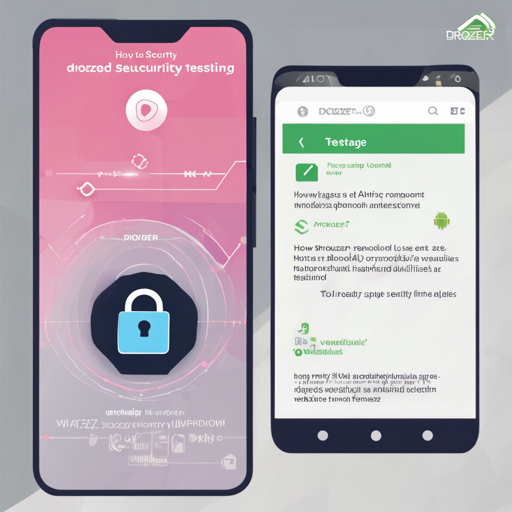Have you ever wondered how secure your mobile applications really are? Well, meet drozer, your partner in security testing for Android. This powerful framework allows you to hunt down security vulnerabilities within apps and devices by simulating the function of an app and interacting with the Android Runtime, other applications, and the OS itself. Let’s dive into how to set up and use drozer effectively!
Getting Started with drozer
The first step is to download drozer, which is an open-source tool maintained by WithSecure. You can grab it from the following link: Download drozer.
Prerequisites
Before you start installing drozer, make sure you have the following software pre-requisites:
- Python 3.8
- Protobuf 4.25.2 or greater
- PyOpenSSL 22.0.0 or greater
- Twisted 18.9.0 or greater
- Distro 1.8.0 or greater
- Java Development Kit 11 or greater
Installing drozer
You can install drozer using pip or pipx. If you have pipx available, it is preferred.
pipx install drozerIf you want, you can also download individual releases from GitHub.
pipx install .drozer-*.whlBuilding drozer from Source
If you fancy building drozer from the source, here’s how:
git clone https://github.com/WithSecureLabs/drozer.git
cd drozer
pip install .Setting Up the drozer Agent
To start using drozer, you need to install the drozer Agent on your Android device:
adb install drozer-agent.apkNow, enable the embedded server in the Agent app and connect your PC to the Android device.
Connection Methods
- Network Connection: You can connect via TCP by running:
drozer console connect --server - USB Connection: If using a network isn’t feasible, set up port forwarding and connect via USB:
adb forward tcp:31415 tcp:31415
Now connect to localhost:
drozer console connect
Verifying Your Connection
Once connected, you’ll see a drozer command prompt confirming you’re connected to the device. Get ready to delve into vulnerabilities!
Common Commands to Explore
Here are some of the basic commands you can use within drozer:
- run: Executes a drozer module
- list: Shows all available modules in your session
- shell: Opens an interactive Linux shell
- exit: Closes the drozer session
Troubleshooting
If you encounter issues, consider the following:
- Ensure all prerequisites are installed correctly.
- Check the IP address and ensure the agent is running correctly.
- For the BETA version, note that the building of custom agents functionality is presently considered out of scope.
- Your network settings may need to be checked if you cannot connect.
For more insights, updates, or to collaborate on AI development projects, stay connected with fxis.ai.
Final Thoughts
At fxis.ai, we believe that such advancements are crucial for the future of AI, as they enable more comprehensive and effective solutions. Our team is continually exploring new methodologies to push the envelope in artificial intelligence, ensuring that our clients benefit from the latest technological innovations.

